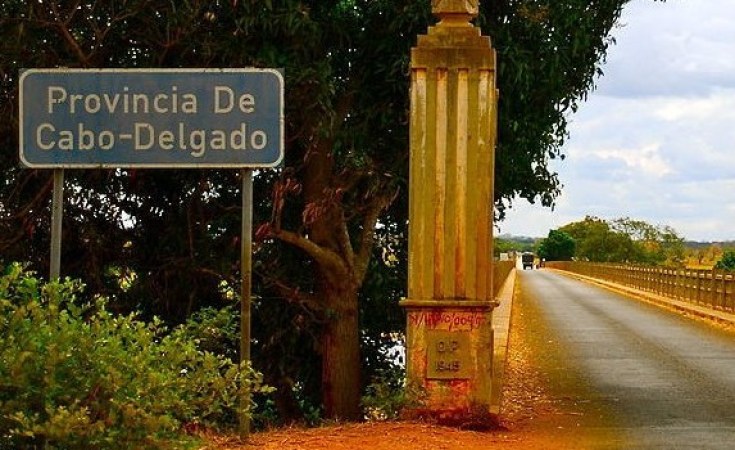Poverty and inequality are rising to a "dangerous" levels, according to a study "The evolution of inequality in Mozambique" published by Wider in December. Most Mozambicans are no better off than they were in 1996, and the bottom 10% is much worse off. Only the top 20% is better off than they were 25 years ago. Inequality and poverty have increased particularly dramatically since 2008.
Cabo Delgado is now the poorest province, with the first graph below showing a dramatic fall in consumption since 2014 - exactly the resource boom period. Inequality is shown by comparing Cabo Delgado consumption levels to those of Maputo city, in the second graph.
Data is based on five household budget surveys (1996/7, 2002/3, 2008/9, 2014/5 and 2019/20). The Wider study uses something it calls "real consumption", which is the average household purchasing power needed to buy a basket of food and non-food items at the official poverty line. Thus for Cabo Delgado the average household in 1996 could buy 1.15 times the cost of food and goods at the poverty line. Conditions improved and at the peak in 2008 it could buy 1.44 times the poverty line. But in 2019, it could only buy 0.74 times the poverty line - three quarters of the minimum needed to survive poverty, and half their income of five years earlier.
More useful is the comparison to Maputo City, where incomes were rising relatively rapidly. In 1996 the average family in Cabo Delgado had 75% of the real income of a family in Maputo city, but by 2019 it was down to just 24%.
Comparison to other provinces matters as well. In 1996 Cabo Delgado had the highest real consumption outside Maputo city. In 2008 only Niassa was higher. Yet a decade later, Cabo Delgado was the poorest province in the country - all other provinces had higher real consumption.
The report concludes: "As the country embarks on the production and exporting of strategically important natural and mineral resources, an increasing trend in income inequality paired with persistently high and worsening poverty levels may be dangerous for social cohesion, economic and social stability, governance, and growth. Effective policy action is required to ensure a higher degree of inclusive growth, to avoid what used to be a fast-growing and poverty-reducing developing country becoming an even further divided, unequal, and conflict-prone state."
The evolution of inequality in Mozambique 1996/97–2019/20 by Giulia Barletta, Maimuna Ibraimo, Vincenzo Salvucci, Enilde Sarmento, and Finn Tarp. December 2022 . WIDER Working Paper 2022/151. https://doi.org/10.35188/UNU-WIDER/2022/284-3


